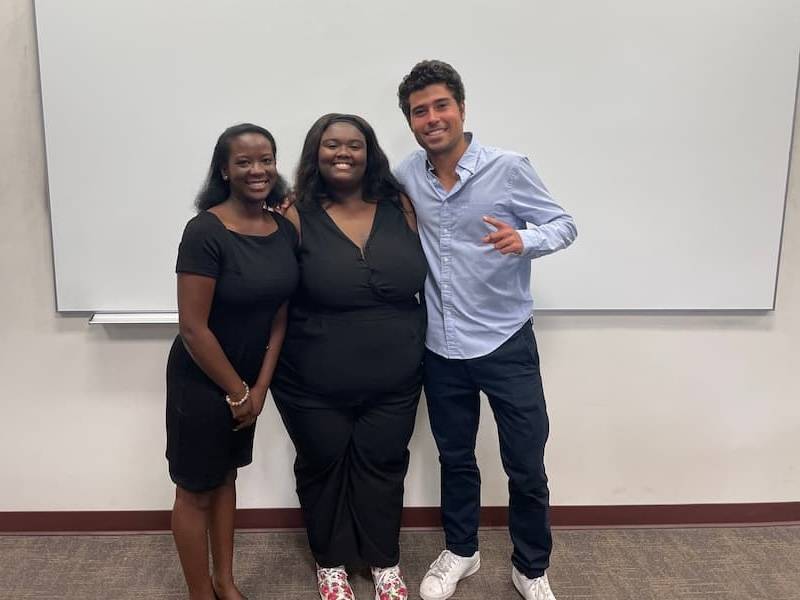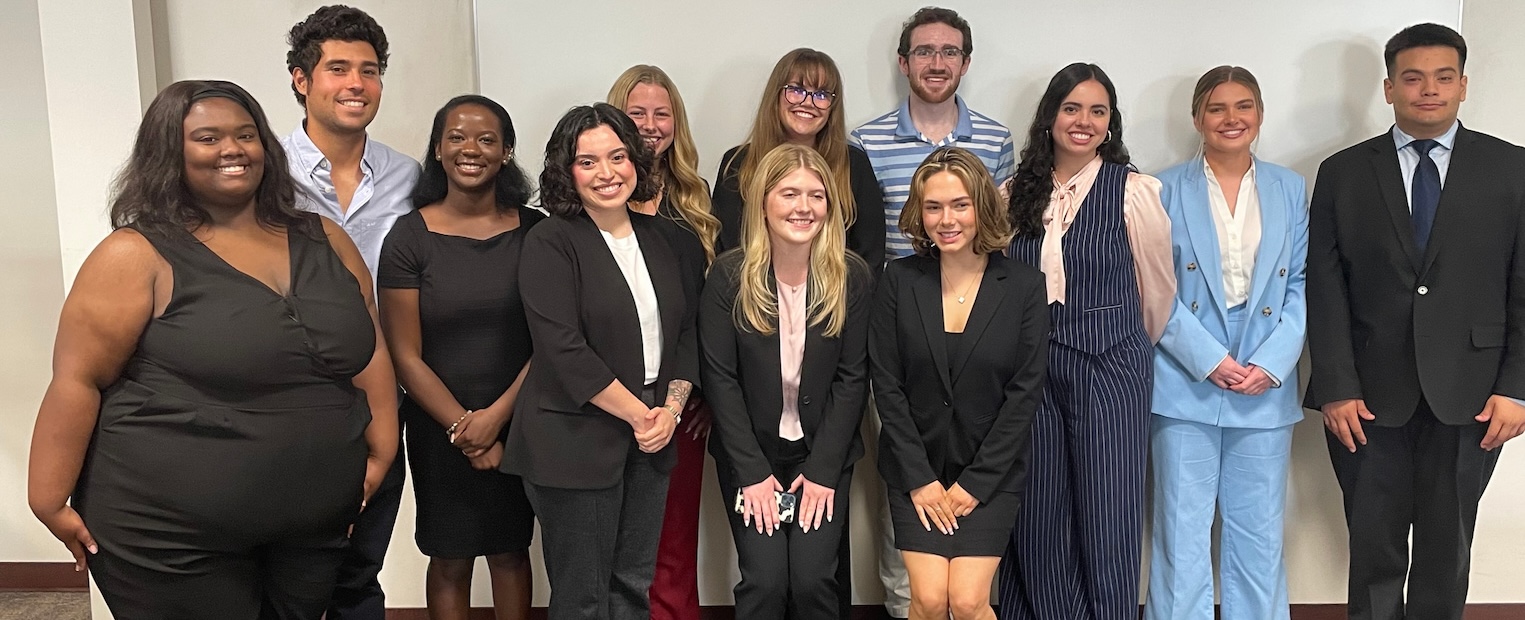In an era when cross-disciplinary collaboration is increasingly crucial to affect change, the course Liberal Arts in Action stands out as a groundbreaking initiative at TCU. This innovative course, co-taught during the spring semester by a faculty team from various disciplines, provided students with a unique opportunity to address problems through the lens of the liberal arts.
While the course was initially set to focus on broad social issues such as climate change, immigration and violence, it eventually evolved to concentrate on the role of social media in today’s global society.
Dean Sonja Watson, Ph.D., piloted the course by assembling the co-teaching team led by Peter Worthing, Ph.D., associate dean of graduate studies and research and professor of history. The team also included Samuel Arnold, Ph.D., associate professor of political science; Tatiana Argüello, Ph.D., associate professor of Latin American literature and cultural studies; Patricia Duncan, Ph.D., associate professor of religion; and Stephen Quinn, Ph.D., professor of economics.
The team collaborated for a year to develop course learning outcomes, lectures and overall objectives.
The uniquely structured course, created with the generous support of Mr. Robert D. Alexander, brought together 12 students with various majors, including criminology and criminal justice, education, economics, journalism, political science, religion, sociology, English and Spanish.
“This was a great experience for the students and the faculty members,” said Worthing. “We had many interesting discussions about the various ways in which social media influences our lives, for better and for worse, so we all learned a great deal.”
Real-World Applications
Because one of the course’s primary goals was to demonstrate how liberal arts can be applied to solve problems, Argüello decided to dive into the realm of digital activism.
“I talked about cyberactivism and cyberfeminism in Mexico, particularly the ways how social media can help to bring justice to violence against women, known as feminicide,” she said.
Argüello taught students about the characteristics of digital activism and the position of cyberfeminism within broader feminist movements. The class also discussed a case study in Ciudad Juárez and analyzed contemporary music as a medium to promote justice against feminicide.
Capstone Projects
The course culminated with students working on collaborative research papers about a problem in the world related to social media.

Argüello said these projects necessitated meticulous planning and guidance, with faculty providing feedback at various stages to help students refine their ideas and arguments.
By working together on the research papers, students fostered richer ideas and deeper understanding of the complex problems presented in the curriculum.
“From my perspective, one of the best things was watching the students take ownership of their projects — identifying the problem, conducting the research, drawing constructive conclusions and then crafting multi-modal presentations to communicate their ideas,” said Worthing.
Reflecting on Challenges and Opportunities
Co-teaching a course with professors from different disciplines presented both challenges and opportunities, according to Argüello.
“I learned from my colleagues’ different disciplines and perspectives in religion, political science, history and economics,” she said.
This diverse expertise enriched the learning experience, offering students a multifaceted view of the issues discussed in class.
However, coordinating across disciplines also required careful planning and communication to ensure a cohesive and integrated curriculum.
Looking Forward
Liberal Arts in Action exemplifies the importance of interdisciplinary education. By bringing together faculty and students from various fields, the course created a dynamic learning environment where different points of view and collaborative problem-solving could help address complex issues.
As Worthing, Argüello and their colleagues reflect on their experience in the spring course, they remain committed to the idea that a liberal arts education equips students with the knowledge, skills and perspectives needed to make a meaningful impact in the world.
The spring 2025 Liberal Arts in Action course will focus on artificial intelligence and be led by Muriel Cormican, Ph.D., associate dean of undergraduate studies and professor of German.
